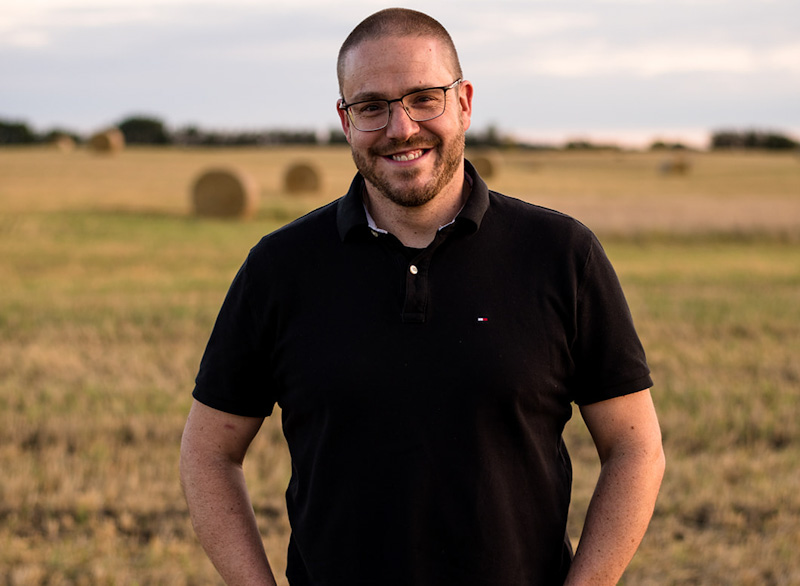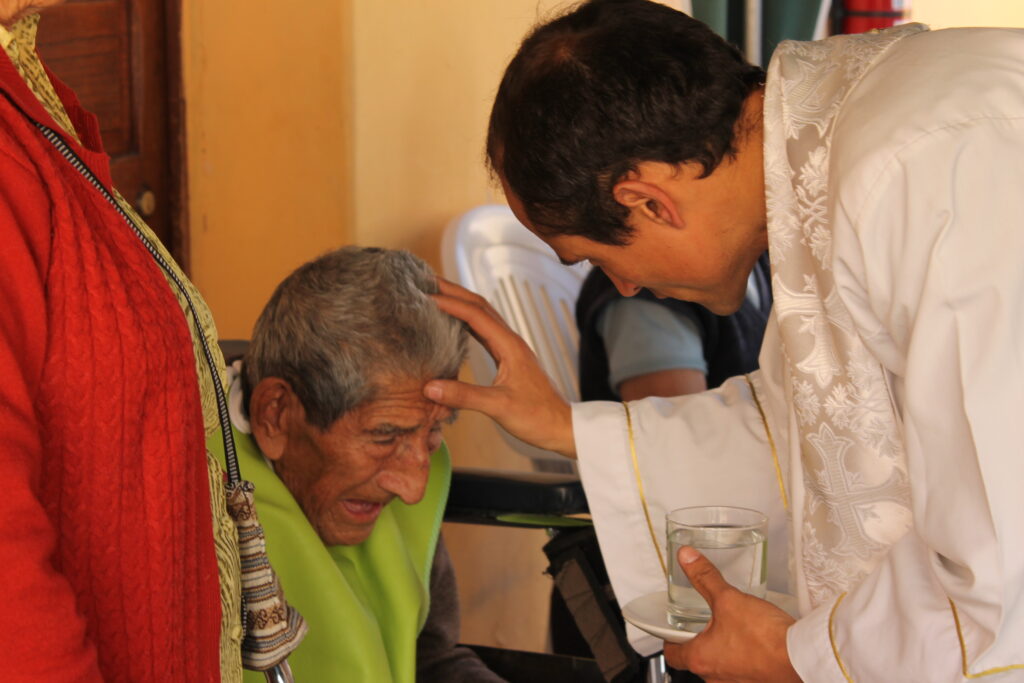One of Jesus’ most well-known and enduring parables is the Good Samaritan (Luke 10:25-37). In this story Jesus speaks plainly about what it means to love your neighbor as yourself, looking out for anyone we might meet who is in need. You see this over and over again during Jesus’ ministry in the Gospels: He sought out the poor and did what He could to aid them. Then he told his Apostles to go and do likewise (Luke 10:37).
 Part of our care for those in need finds its shape in the Church’s social teaching (for which Pope Francis had a companion volume for YouCat published, titled DoCat). But alongside the ways in which we love our neighbor as ourself, there are two sacraments by which the Church exercises her care for those in need:
Part of our care for those in need finds its shape in the Church’s social teaching (for which Pope Francis had a companion volume for YouCat published, titled DoCat). But alongside the ways in which we love our neighbor as ourself, there are two sacraments by which the Church exercises her care for those in need:
“Christ’s love is shown in the fact that he seeks the lost and heals the sick. That is why He gave us the sacraments of healing and restoration, in which we are freed from sin and strengthened in our physical and spiritual weakness.” -YouCat 224
The Sacrament of Reconciliation
When we are Baptized, every sin we commit is forgiven by God. But all of us continue to be affected by the power of sin in our lives after Baptism. This is why we have the Sacrament of Reconciliation; we need a place where we can be reconciled with God again and again. That place is confession… someone who has gone to confession turns a clean, new page in the book of his life” (YouCat 226). Through this Sacrament, God gives us His grace to avoid sin and truly change.
Many people stay away from the gift of this sacrament out of fear. This could be a fear of their sins or perhaps of what the priest might say, but for whatever reason they just don’t go. When we give into these fears, we miss out on what Reconciliation can do for us. Where sin separates and destroys; forgiveness restores and heals. In Reconciliation, we have the chance to unload our sins by sharing them with a priest. Through his voice, we hear Jesus forgive our sins, whatever they might be. We do this in a personal encounter rather than directly to God both because Jesus entrusted this ministry to His Apostles (John 20:23), and because it’s good for us:
“We rationalize our sins away and like to sweep things under the rug. That is why God wants us to tell our sins and to acknowledge them in a personal encounter.” -YouCat 228
Confession is a powerful and transforming experience. Having this safe and sacred place where we can leave the mess of our lives behind, the mistakes we’ve made, and make a fresh start with God is truly one of the great gifts of our Catholic faith. For many, Reconciliation is one of the greatest tools by which we can respond to our call to become holy- because it’s here that we leave what is unholy behind. YouCat reminds us that “Christians who take seriously their decision to follow Jesus seek the joy that comes from a radical new beginning with God” (YouCat 235).
If you haven’t been to confession for a while, or you’re not sure what to do when you go… I’ve prepared something that should help: Click here for a guide on How to Go to Confession & an Examination of Conscience
The Sacrament of the Anointing of the Sick
“Jesus came in order to show God’s love. He often did this in places where we feel especially threatened: in the weakening of our life through sickness.” -YouCat 241
If you haven’t seen a family member suffer through an illness, you may not have come across the Sacrament of the Anointing of the Sick. In fact, we used to refer to it as the ‘Last Rites’ offered to one who was reaching the end of their life. Although this is an appropriate use of this Sacrament, this is certainly not its sole purpose. The Sacrament of the Sick allows us to receive God’s grace in any moment of illness- a chronic condition, life-threatening disease, or a surgery are all also valid moments you can call for a priest to receive the Sacrament of the Sick.
In this Sacrament, the person who is ill receives an anointing with holy oil on the forehead and the hands, along with certain special prayers that God would meet them in their illness. In some cases, the result of this anointing will include some form of healing. In every case, it is a moment of encounter with Christ Himself:
“The Anointing of the Sick imparts consolation, peace, and strength and unties the sick person, in his precarious situation and his sufferings, with Christ in a profound way. For the Lord experienced our fears and bore our pains in his body.” -YouCat 245
The Psalms tell us that “The Lord is near to the brokenhearted and saves the crushed in spirit” (Psalm 34:18). Throughout the Gospels, Jesus shows what this looks like and challenges us to show the same sort of care for our neighbor. He also leaves us these two Sacraments as a place to encounter Him in our greatest need, whatever that might look like:
“Sometimes a person has to be sick in order to recognize what we all – healthy or sick – need more than anything else: God. We have no life except in him. That is why sick people and sinners can have a special instinct for the essential things.” -YouCat 241
[Author’s note: This article does not deal with the age-old question of why God allows suffering, just the Sacraments of Healing Christ established for us. If you are in the midst of great sufferings yourself, there are no easy answers – this is why Jesus wept when he encountered Lazarus’ sisters in the Gospel, and I wrote about that here. If want to read more on the question of why God allows suffering, I’d suggest the following articles: God Gives us More Than We Can Handle, Why Does God Let Us Suffer So Much?, and What Happened to the Healings? I am praying for you. -Mike]

